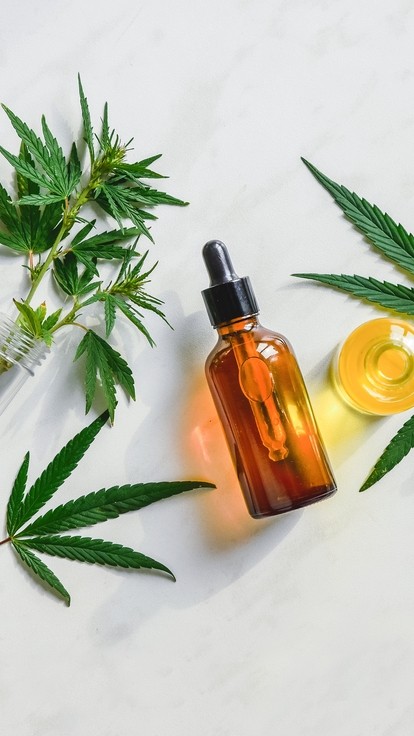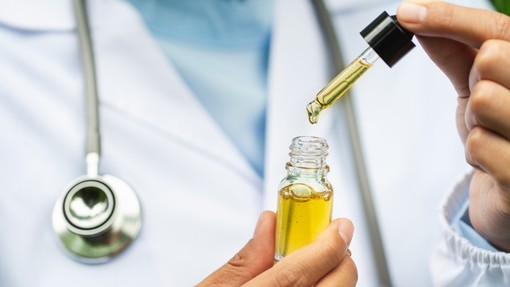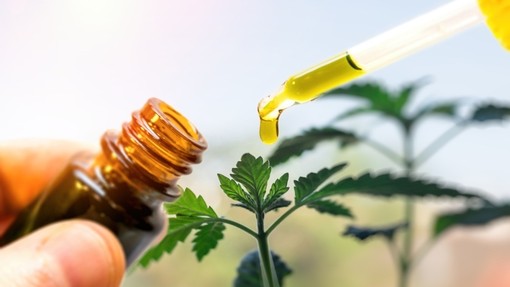Recent developments for the CBD market operating within the UK

Details
On 13 February 2020, the Food Standards Agency (FSA) issued guidance as to the safe use of CBD products, and the FSA has also imposed an industry deadline of 31 March 2021 for the submission of a valid application for ‘novel food’ authorisation. The industry now has until 31 March 2021 to submit valid applications for currently unauthorised novel foods, otherwise they must be removed from the market.
In this piece, members of the firm’s life sciences team provide commentary on the current CBD landscape and why the latest FSA guidance is good news for the industry.
CBD and the UK
It should be well known by this stage that parts of the cannabis plant and THC are both controlled substances and therefore cannot be imported, exported, distributed, sold or bought in the UK without the relevant licences (otherwise, such activities may constitute a criminal offence). Of course, these controlled substances are relevant to medicinal cannabis, but there is an entirely different ‘wellness’ sector in the UK relating to CBD. CBD (also known as cannabidiol) is a cannabinoid and is not treated as a controlled substance by the Home Office.
Wellness is a description that has been coined on a global scale to ensure that CBD products do not make medical claims. Making a medical claim for a product is strictly prohibited unless such products have obtained a marketing authorisation and relevant approvals from the Medicines and Healthcare products Regulatory Agency (the MHRA).
CBD is used in various products, the most prevalent of which are ingestibles, vapes and cosmetics. A major hurdle for ingestibles in Europe and the UK has been navigating the confusion arising from novel foods status for CBD.
Novel foods regime and CBD-products
In 2015, the European Parliament and the European Council implemented Regulation (EU) 2015/2283 on novel foods (the ‘Novel Foods Regulation’) defining a novel food as any substance or product ingested by humans that was not used for human consumption to a significant degree within the European Union before 15 May 1997. The purpose of the Novel Foods Regulation was to establish procedures for the authorisation and evaluation of new foods before entering the EU market without first obtaining prior authorisation. The EU maintain a centralised catalogue of novel foods (the ‘Novel Foods Catalogue’). Many UK consumers would perhaps be surprised that a number of foods that form part of their regular diet are considered ‘novel’ by the EU (such as, chia seeds and quinoa), despite a long-history of consumption in other non-EU countries.
In January 2019, CBD and other cannabinoids were added to the Novel Foods Catalogue. Until now, the FSA, the competent food safety body in the UK, has allowed a CBD-market to grow and evolve whilst working with stakeholders to create a proportionate response to enforcing the novel foods regime. This has left a growing market without clear public guidance on its approach to enforcement of the novel foods regime in relation to CBD-products. This has led to significant confusion for operators in the CBD industry and the consumers, as the availability of CBD-based products on the high street and online has been growing whilst no novel foods authorisations exist.
The latest FSA guidance of 13 February 2020
After nearly 12 months of consultations and a lack of clear public guidance, the FSA published its guidance on 13 February 2020 (the ‘FSA Guidance’). The FSA Guidance makes it clear that it does not consider non-ingestible products, such as cosmetics and vapes, as within the scope of the FSA’s Novel Foods Regulations. This will be an important update to a number of retailers of CBD products falling inside these categories. Such products do not, therefore, require a novel foods marketing authorisation to be sold within the UK. The FSA Guidance also has no impact on CBD-based products prescribed for medical use.
The FSA Guidance has now made it clear that after 31 March 2021, only products that have submitted a valid application for novel foods authorisation can continue to sell their products on the UK market after that date and until the authorisation process is determined for that application. Time and care needs to be taken in preparing the application for the base ‘stock’ of CBD to be used as the ingredient for the CBD products (as the base ‘stock’ will be the novel food which needs authorisation by the FSA).
As such, after an extended period of limited enforcement of the novel food regime, the FSA authorisation process for novel foods will be enforced from 31 March 2021 to ensure that CBD, as a novel food, is legally distributed.
Of course, selling any product in the UK requires strict compliance with trading standards. Such compliance requires details of the contents of the products. This is not to say that an operator cannot be guilty of any other offences relating to CBD products (such as the THC content), but it does provide breathing space with respect to novel food authorisation.
As mentioned before, medicinal or health claims for CBD products should not be made without an MHRA licence. Food products can only make health or nutrition claims if these appear in the EU register on nutrition and health claims. There is a grey area that, providing the label is not misleading, a product with a recognised health benefit (such as lavender) could be infused with CBD without falling foul of this restriction.
FSA safe use guidelines for CBD products
The FSA Guidance also provides some guidance provided by the FSA in relation to the use of CBD. The FSA Guidance references to the precautionary advice of the government’s Committee on Toxicity (COT), which has determined that there are potential side effects associated with the use of CBD products. Consequently, the FSA has now issued guidance that:
(i) pregnant mothers or mothers who are breastfeeding or taking any other form of medication should not to consume CBD products; and
(ii) (healthy adults should not exceed a recommended dosage of 70mg a day, which they have equated to 28 drops of 5% CBD (unless under medical direction).
Interestingly, the FSA is not citing CBD as a medical product by its nature (something which the Veterinary Medicines Directorate (VMD) has questionably determined in relation to CBD products for animals), so this is a positive step. It could perhaps be ammunition for lobbyists in relation to the limitations placed upon the availability of CBD products for animals by the VMD.
Is the FSA Guidance good news?
We think it is. A major block on the CBD industry has been the confusion relating to the legal status of CBD and the CBD products. This provides clarity where before there was previously confusion. We regularly receive queries about the Proceeds of Crime Act and how it interacts with CBD sales. We also have numerous conversations about the major issues in establishing bank accounts for operators. These changes should help address this suppression of consumer and investor confidence and also open new avenues to fundraisings (such as the capital markets with IPOs for CBD related operators). It should also improve the quality of the market by focusing on operators who are committed to operating in the UK in a compliant manner.
As the industry continues to grow and demand for reform and regulatory clarity persists (including clear guidance from the Home Office on Exempt Products status for CBD products which have less than 1mg of THC per container and are not designed to be for the distribution of THC (as a controlled substance)), the opportunities for operators and retailers in this area will expand.
For further information, please contact Mark Wheeler and Jack Delaney, members of the corporate team, or Tom Crisp and Jamie Foster, members of our health and regulatory team, for further guidance.




